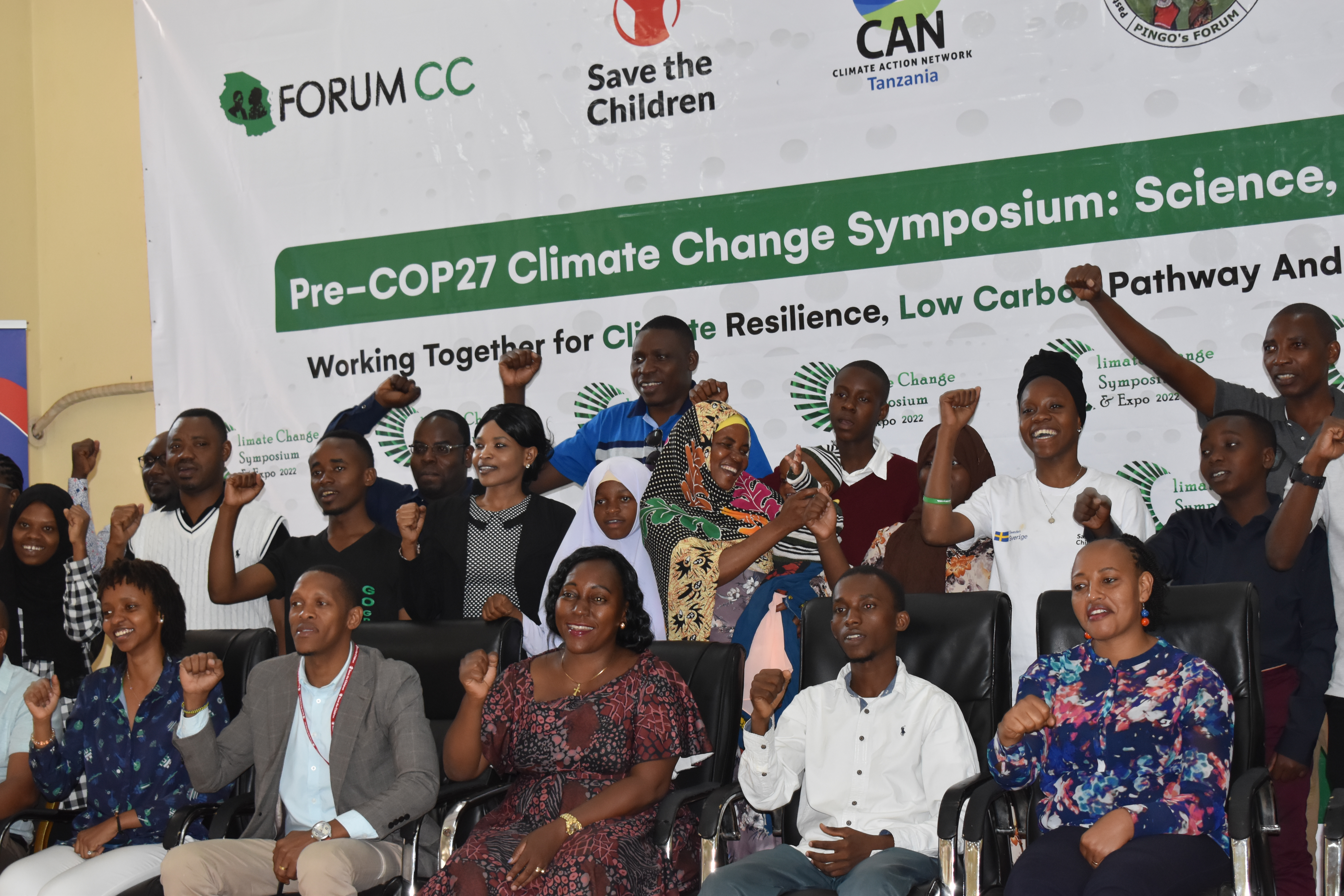
Published: OCTOBER 20, 2022
We co-hosted a 2-day Tanzanian PreCOP27-conference to ensure that local voices, needs and stories are represented and amplified during the upcoming climate conference in Egypt. The upcoming COP27 in November has to be an African COP that centres around African priorities and address urgently needed issues as Loss & Damage, Adaptation, Health and Climate Finance.
Climate action need to be informed by bottom-up and on-field experience of vulnerable communities. The Pre-COP27 strengthened and empowered African voices to focus African issues in-scope of COP27.Together with ActionAid Tanzania, Forum CC, Save the Children Tanzania, and Pastoralists Indigenous Non-Governmental Organization’s (PINGO’s) Forum we invited 200 participants from Civil Society Organizations, Women, Young People, Pastoralists, Smallholder Farmers, Fisherfolks, representatives from the MDAs, and Local Government Authorities, Development Partners, the Private Sector, and Media. CAN TZ focused on to main topics: Just Transition & Health. To explore burning issues, solutions and evidence from the ground around Just Transition & Health, CAN Tanzania organized panels on this topics supported by Preston Werner Ventures , Friedrich-Ebert Stiftung Tanzania and UKAid.
Climate Change is a Health Threat. Climate impacts affect social & enviormen-tal determinatns of health: clean air, safe drinking water,sufficent food
secure shelter. Strong health infrastructure can help to cope
Building Reslience and response to Climate Impacts. Therfore CAN Tanzania organzied a special pannel on health supported by Preston Werner Ventures in scope of the INSECT project. Particpants discussed how a Health Adaptation plan (HNAP) can support adressing Health risks connected to climate impacts. Currently the Health & Climate Nexus has low awerness therfore a guiding document could help to plan signficant actions.
As one component it is important to assess and measure Health Impacts and Health realted Loss and Damage probably. A prober assesment of Health rela-ted Loss and Damage is elementary to mobilize and justify finance to adress this challenges. Climate Impacts as droughts, Floodings,and sea level rise cause losses and damage. In Tan-zania
People lost lives and houses in floodings, lost crops and livestocks in droughts, experienced more out-breaks of disases and farms got damaged by salt water intrusion and costal erosion.
Communities in Tanzania get not sufficient support to recover from this impacts. People have no chance to rebuilt and start new with out getting money and help for it.
Rich countries caused mainly the climate crisis and are responsible to support communities to repair damages and recover from climate impacts. People and Communities in Tanzania deserver a fair chance to recover from climate Impacts. Therefore it is clear that a Loss and Damage Finance Facility is urgently needed to mobilize money to address Loss & Damage. Additionally a special report of the IPCC that asses the need of finance is demanded so the finance can be scoped based on really need and demands.
Alongside recovering from Climate Impacts it is also important to built resilience against climate impacts to prevent and minimize Loss and Damage. As a guiding principles for recovering, minimizing and mitigating Loss and Damage a inclusive and participatory process is mandatory. This guarantees that no one is left behind. Adaptation, Mitigation and Addressing of Loss and Damage has to be just. This means women, youth and marginalized groups has to have the chance to participate and benefit equal. Marginalized groups have systemic limited access to resources, decision-making and education that enable them to prepare, prevent and recover from climate impacts. Therefore CAN TZ organized panels on Just Transition supported by the Friedrich Ebert Stiftung Tanzania (FES Tanzania). The participants discussed what can shape a just transition. In specific the job market is challenged by climate impacts. To secure jobs and job opportunities for everyone the unequal chances for marginalized groups have to be addressed. Marginalized groups can be empowered by building their capacities to participate in decision making, enable them access to resources and education.
